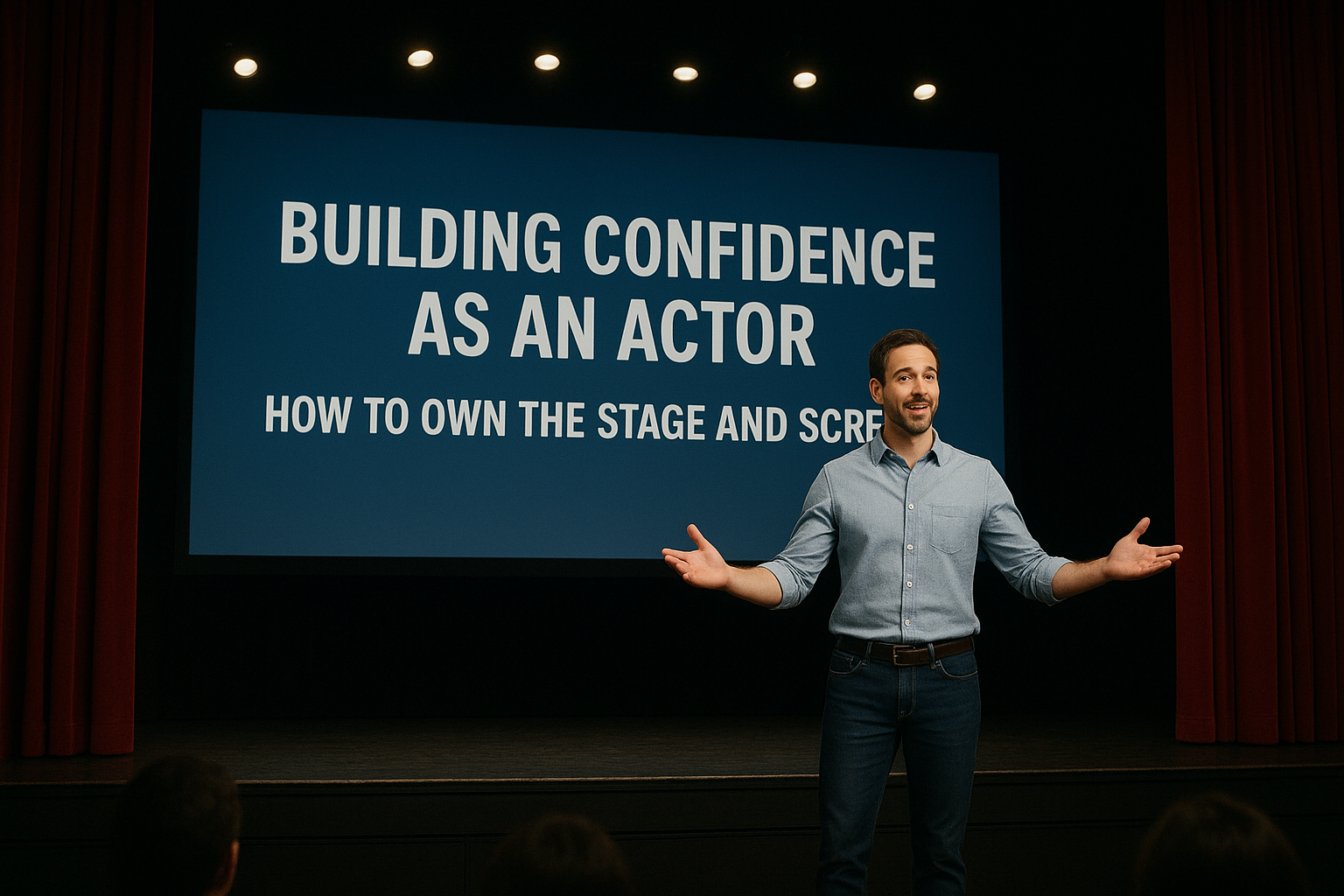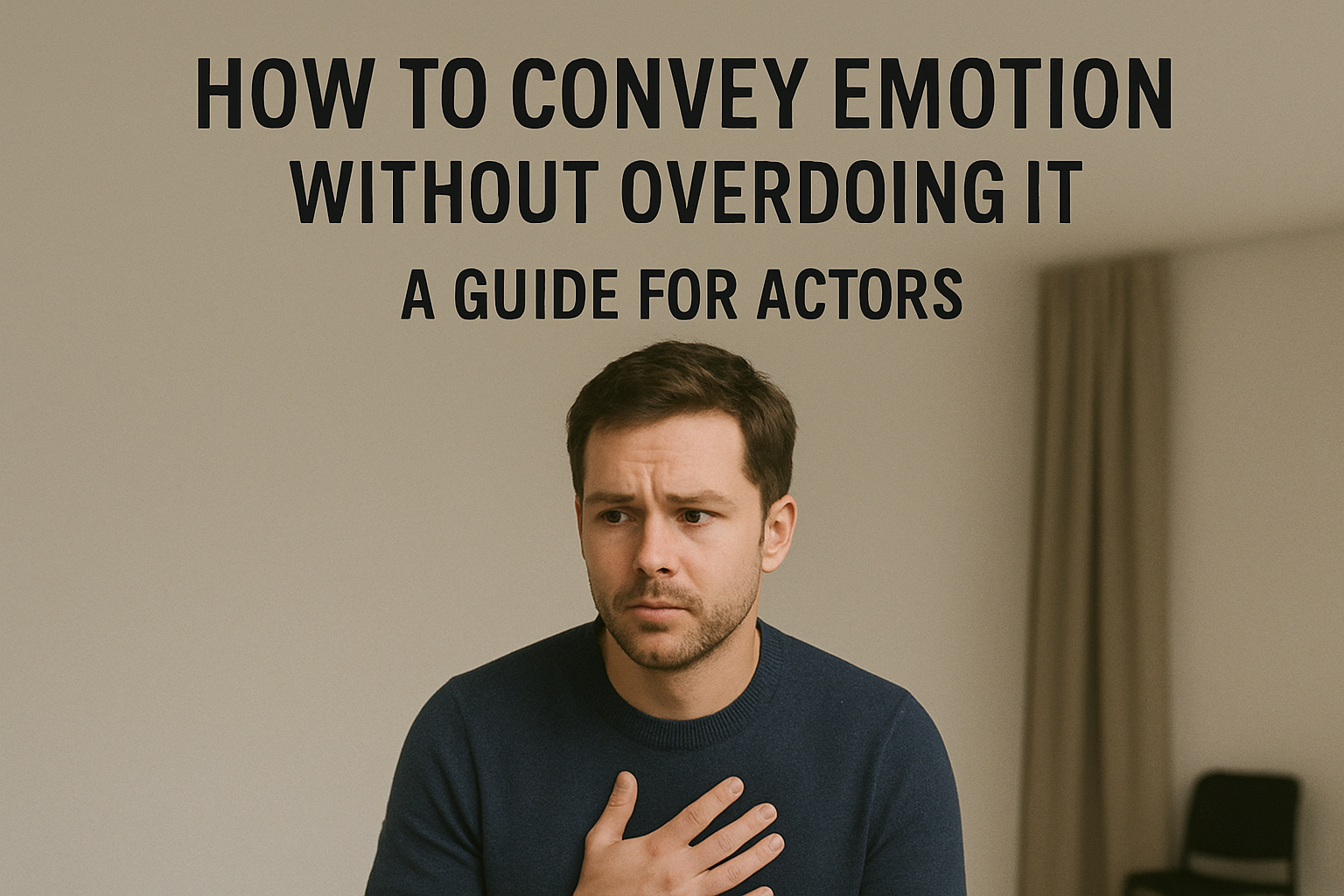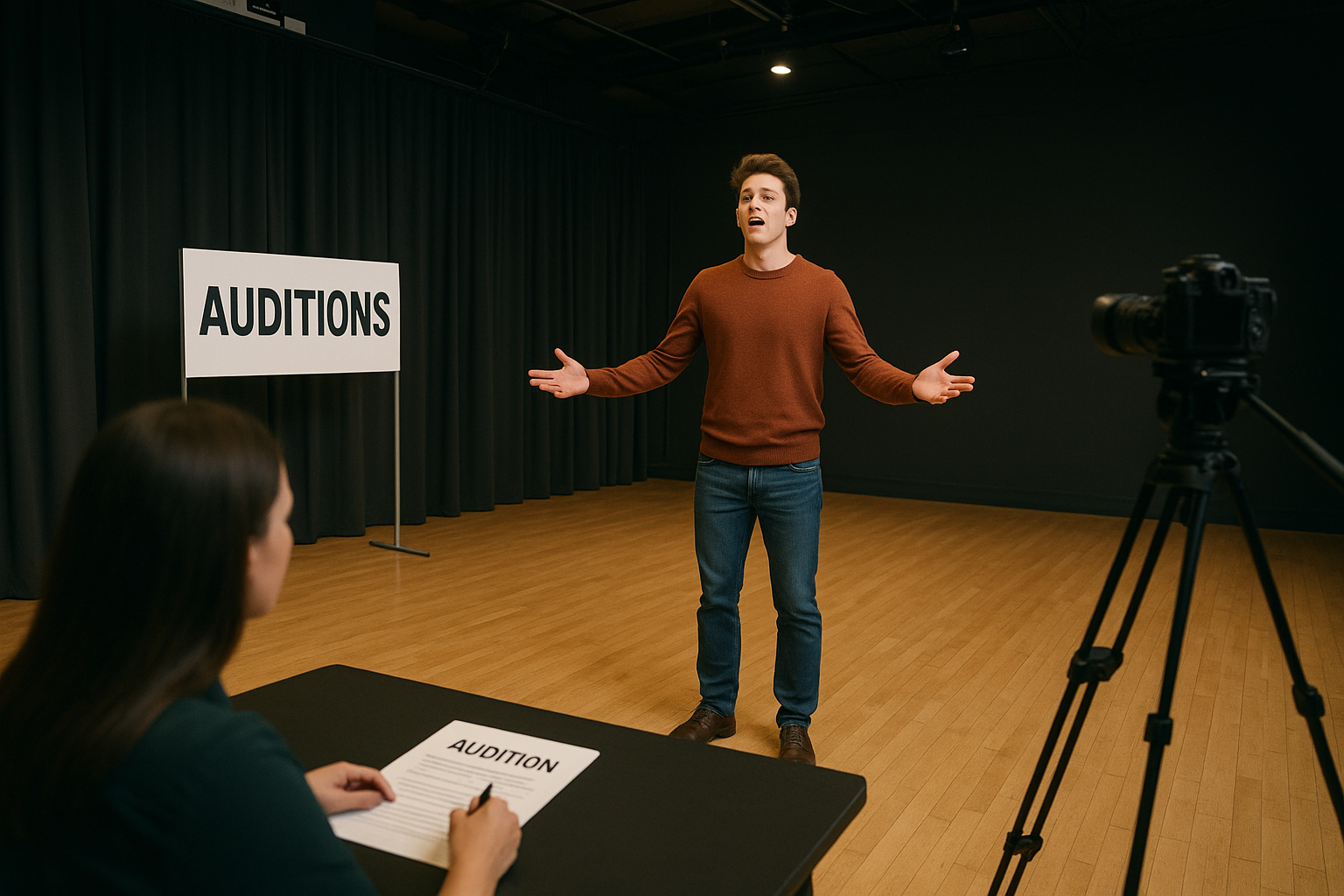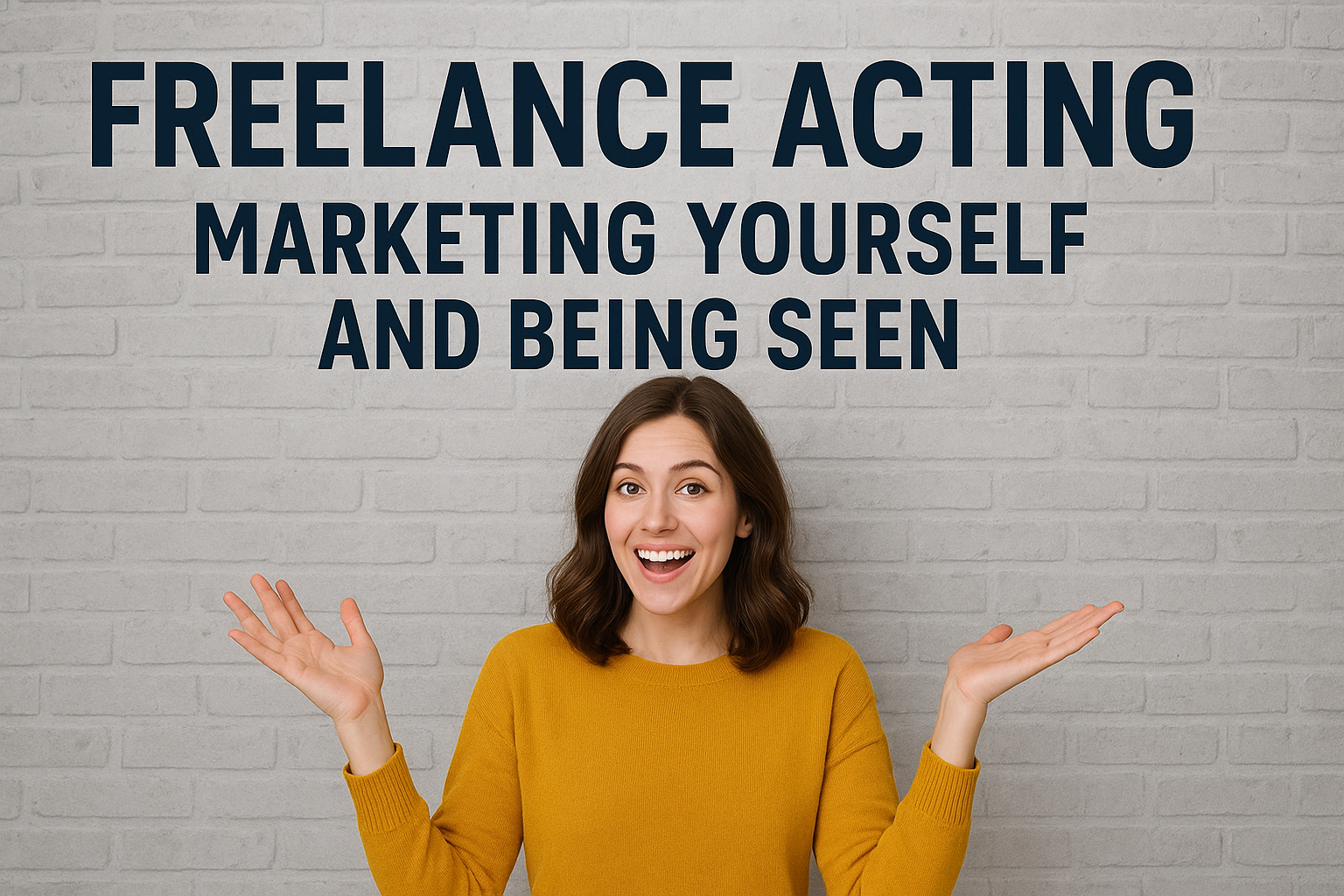
Confidence is not something that an actor merely wishes they had — it is essential to your work. Whatever you do, whether it's acting out a monologue in front of a panel of casting directors, acting in front of a live crowd, or standing in front of a camera, confidence can make all the difference between fitting in and standing out. But let's be realistic: acting is risky work. So how do you establish that sort of self-confidence in a profession full of rejection, competition, and stress.
Here's a dive into what confidence actually means for an actor, and actionable steps to establish it — for good.
What Confidence Really Means for Actors
Confidence is often misunderstood. It's not about being loud, bold, or overly sure of yourself. For actors, confidence is about trust — trust in your training, your preparation, your instincts, and your presence. It’s being able to step into a role without second-guessing your choices, and to accept feedback (or even silence) from casting directors without letting it shake your sense of worth.
Real confidence is low-key, solid, and genuine — and sure, it can be developed.
Why Confidence Is Important at Auditions and On Stage
Casting agents, producers, and directors know when you have confidence the minute you enter the room or are on camera. It is evident in your posture, your gaze, your voice, and your decisions.
Here's why confidence can make a difference in your acting life:
You make braver decisions. Scared actors play it safe. Courageous ones play with their range.
You can take rejection more in stride. It's not about you — it's business, and bold actors understand that.
You're more hireable. Folks prefer to work with pros who are secure in themselves.
You bring characters to life more richly. Confidence frees you from self-awareness so your imagination can run.
1. Train, Then Trust the Training
Actors tend to be uncertain because they don't know if they're "doing it correctly." The best thing to overcome that uncertainty is steady training.
Attend acting classes consistently — scene study, improv, voice, movement, on-camera.
Learn from instructors who push and motivate you.
Practice beyond class — rehearse monologues, record self-tapes, read plays.
Then — and this is important — trust the training. When you walk into an audition room or onto a set, leave judgment of yourself behind and allow the work to propel you.
2. Create a Pre-Audition Routine
Confidence loves consistency and preparedness. Create a simple routine that grounds you prior to any audition or performance.
Your routine may consist of:
Breathing or meditation exercises
Vocal warm-ups
Physical stretching or movement
Go over your lines or character intentions
Listening to music that pumps you up or relaxes you
This practice is a "reset button" for your nerves and says to your brain: you've got this.
3. Reframe Rejection
Rejection is a certainty in an actor's life. The faster you stop making it about you, the freer and more confident you'll be.
You're not being rejected — the part isn't the right fit.
Casting is not about dozens of things (age, appearance, chemistry, timing) that you have no control over.
Each audition is a success — you made it into the room, you presented your work.
Rather than think "no" is failure, think of it as another rep — like an athlete preparing for game day.
4. Build Your Body Language
Your body often speaks before your voice does. Confidence speaks through:
Good posture
Direct but easy eye contact
Open movement
Calm, earthy breathing
Do this: next time you are nervous, stand up, put your feet down, and breathe slowly. Even if you aren't yet feeling confident, your body will begin to make your brain believe you are.
5. Practice Often — Even in Small Spaces
You can't build confidence in the abstract. You must stand up and do the thing — repeatedly.
Join a community theater group or acting ensemble
Do short films or student films
Work on monologues on camera and review your playback
Read plays aloud with friends
The more you practice, the more comfortable performance becomes — and the less scary it is.
6. Maintain a "Wins" Notebook
Actors tend to dwell on what didn't go right. Turn it around. Keep a basic notebook where you log:
Auditions where you felt confident
Compliments or feedback you've received
Moments when you stretched your comfort zone
Moments when you remained grounded under duress
Check this every now and then. It's your proof file that you're getting better — and growing.
7. Be Around the Right People
Confidence is contagious. Have around you:
Supportive peers who rejoice at your growth
Coaches and teachers who push you with love
Mentors who keep you reminded of your long-term vision
Steer clear of energy vampires — individuals who constantly complain, compare, or compete. Guard your confidence as part of your job description (because it is).
Confidence Is a Practice
Confidence is not innate — it's something you develop. It's developed each time you step into your fear, enter an audition even when you're terrified, or accept a part that pushes you outside of your comfort zone.
You don't have to be 100undefined certain to take action. You just have to take action anyway — and trust that confidence will follow.
So take a deep breath, trust your work, and leap.
Because someone is waiting for what you have to offer — and they won't be able to see it if you don't show up with the faith that you belong.
Among the tough battles actors face is how to find the most appropriate balance between emotion display and overacting, either on stage, on camera, or when going for auditions. Many performers fear that without adequate emotions, the moment will fall flat. On the other hand, if emotions are overt, the performance may become exaggerated or not true to life.
The entertainment sector is witnessing a huge shift, and the epicenter of this revolution is digital media. Those days are long gone when acting careers were reserved for silver-screen movies or television. Now, web series and digital media such as Netflix, Amazon Prime, Hotstar, YouTube, and MX Player have opened up the floodgates of opportunities for thespians. But what does it actually mean to be an actor in the digital age? Is it all that different from acting in the past? And why do web series prove so engaging as a platform for new and established performers?
Acting may be an art, but in the world of professional performance, it begins long before the cameras roll or the stage lights shine. It begins with the audition — the often nerve-wracking, unpredictable process that determines whether an actor even gets the chance to perform. For aspiring actors, understanding the relationship between auditioning and acting is not just important — it's essential. One feeds into the other, and together, they shape an actor’s growth, resilience, and ultimate success.
Getting into acting is hard — but succeeding as a freelance actor might be harder. Without the support of a large agency, production company, or manager, you're basically a sole proprietorship. You're the product, the marketer, the promoter, and the brand. So how do you become visible? How do you promote yourself as a freelance actor among so many talented individuals? Whether you're new to the game or wanting to level up, this guide will take you through essential strategies to create visibility, bring in opportunities, and establish yourself as a player in the cutthroat industry of freelance acting.
Lights Camera Audition!
Don't miss out on the latest updates, audition calls, and exclusive tips to elevate your talent. Subscribe to our newsletter and stay inspired on your journey to success!







